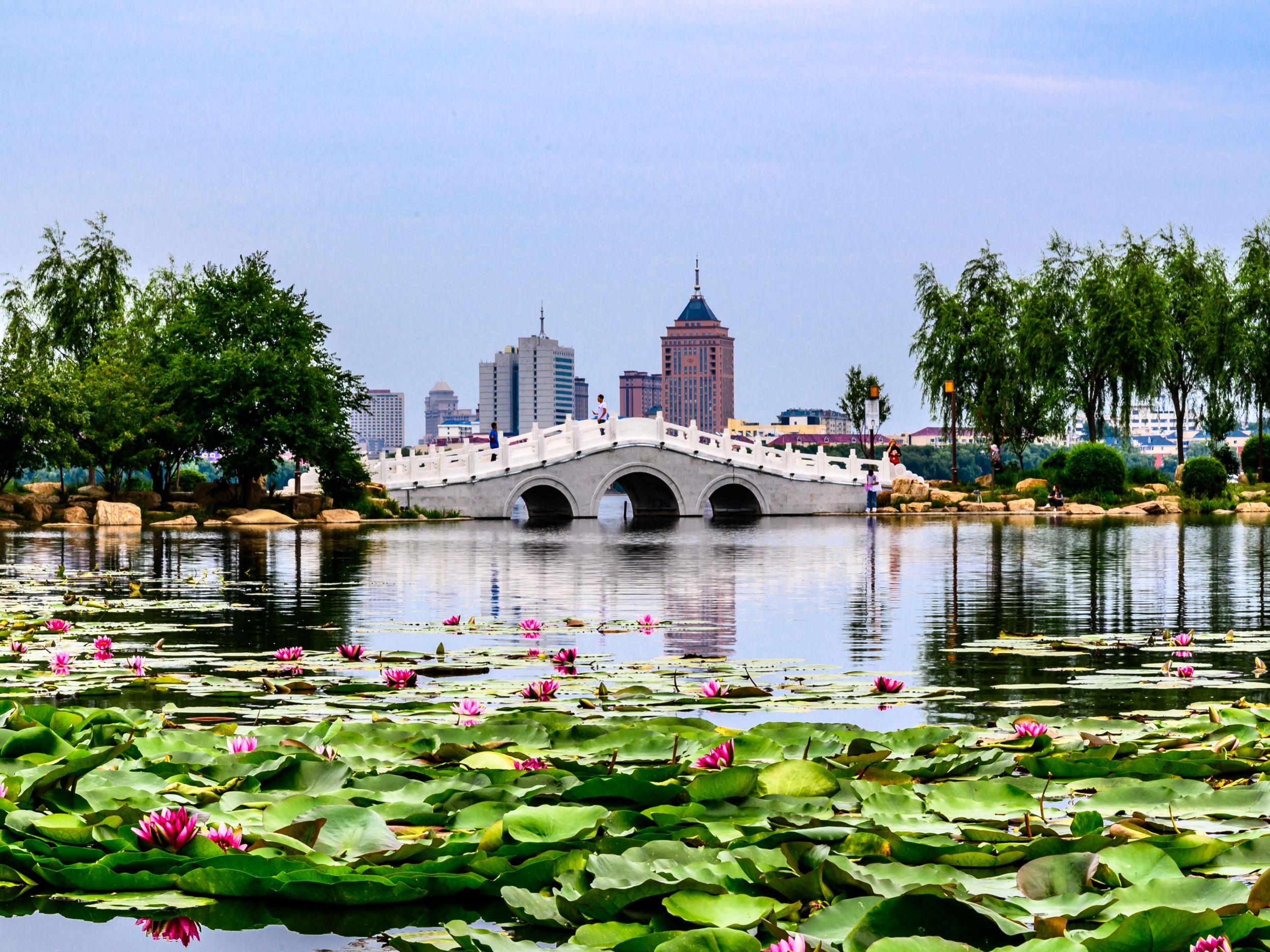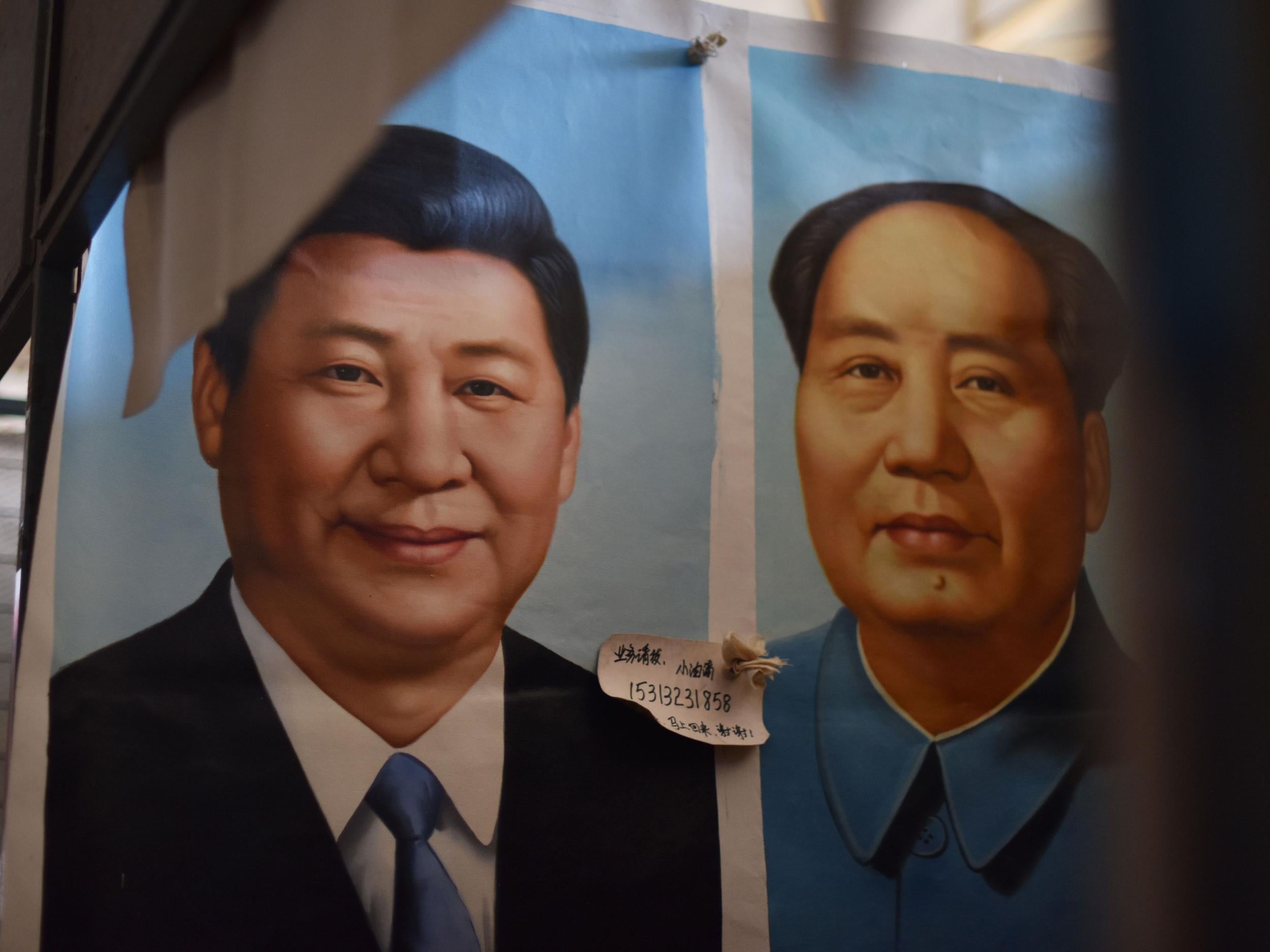Where Chinese communism set sail: Exploring Mao Zedong’s sacred lake
Nearly a century after a small group of revolutionaries held the first party meeting on a boat, Nanhu Lake has become a place of revered tradition and mythical lore, writes Javier C Hernandez

Your support helps us to tell the story
From reproductive rights to climate change to Big Tech, The Independent is on the ground when the story is developing. Whether it's investigating the financials of Elon Musk's pro-Trump PAC or producing our latest documentary, 'The A Word', which shines a light on the American women fighting for reproductive rights, we know how important it is to parse out the facts from the messaging.
At such a critical moment in US history, we need reporters on the ground. Your donation allows us to keep sending journalists to speak to both sides of the story.
The Independent is trusted by Americans across the entire political spectrum. And unlike many other quality news outlets, we choose not to lock Americans out of our reporting and analysis with paywalls. We believe quality journalism should be available to everyone, paid for by those who can afford it.
Your support makes all the difference.He was anxious about China’s trade war with the United States. He was worried about the rise of pro-democracy activists in Hong Kong. So Liu Yuanrong, a lifelong member of the Chinese Communist Party (CPC), followed the advice of a friend: go to the lake. That would be Nanhu Lake, a cradle of Chinese communism in eastern China that in recent years has become a spiritual retreat for the party’s more than 90 million members.
There, near a forest of pine trees one recent day, Yuanrong straightens his back, furrows his brow and throws his fist triumphantly into the air. “I vow to devote my life to defending communism,” says Yuanrong, an electronics trader from southern China, reciting a party oath. “I vow to sacrifice everything for the party.”
Nanhu Lake, which played host to the CPC’s first congress nearly a century ago, has long been a staple of communist lore. In the strongman era of president Xi Jinping, the lake has gained new prominence as a place for throngs of patriotic tourists – students, hospital workers and technology entrepreneurs among them – to declare their love for the party and Xi.
Thousands of people come to Nanhu Lake and its museum, Nanhu Revolutionary Memorial Hall, each day, according to a report from China’s news agency, a testament to swelling nationalism in China under Xi, whose visit to the lake two years ago inspired a wave of tourism. Last year, the lake has had over one million visitors. “We think this place is sacred,” says Yang Jinping, a stay-at-home mother.
As China grapples with ongoing trade tensions with the United States and a slowing economy, many come to the lake in search of an emotional lift. They sing patriotic songs, recite Xi’s slogans about the “Chinese dream” and reminisce about revolutionary heroes. “We want to show our gratitude to the party,” Liu says, “and to remember that China can only be strong with a strong party.”
The experience of the visit culminates at a 161-foot-long wall emblazoned with the party’s hammer-and-sickle flag, where visitors clench their fists and recite an oath of loyalty to the party, a communist ritual that has come back into fashion under Xi, who also serves as the party’s chairman.

In 1921, Mao Zedong and a small group of revolutionaries held the party’s first congress on a boat in the middle of the lake, after police chased them out of Shanghai, about 60 miles northeast. Across China, the so-called “red boat” is well known.
At the museum at the lake, which started construction when Xi was the top party official here in Zhejiang province, a selective retelling of party history is on display. Inside, there are exhibitions about China’s “century of national humiliation” at the hands of foreign powers, the spread of Marxism in China and Mao’s founding of the People’s Republic in 1949.
Visitors to Nanhu Lake say that the gesture of the raised fist, long associated with leftist causes, conveys a sense of resilience and grit and is well suited to China’s rise as a superpower
A glittering display on the top floor is devoted to Xi, China’s most influential leader since Mao. His speeches play on a loop and his slogans are plastered across the walls, including one that says, “lead the great renewal of the Chinese nation”. A gift shop sells Communist Party pins, commemorative coins and certificates of party membership. But the most prized souvenir is a photo by the so-called oath wall outside.
Xi, who rose to power in 2012, has led a renewed interest in party history and a revival of its traditions, including the oath, part of his efforts to extend the party’s domination over daily life in China. Critics say Xi is bringing China back to the days of one-man rule and fuelling a personality cult.
During a tour of revolutionary sites in 2017, Xi and the other six members of the Politburo Standing Committee, China’s highest decision-making body, visited a Shanghai memorial, where Xi led a recitation of a party oath before a giant flag. The Politburo members, standing solemnly, raised their fists in unison.

Then the leaders went to Nanhu Lake, where they visited a replica of the boat where Mao and the other founders of the party held their meeting. Xi, speaking after the visit, described the lake as one of the places where “the Chinese Communist Party’s dream set sail”.
“Our party was born here, our journey began here and our rule of the country all dates back to here,” Xi said back in 2017. Oath-taking ceremonies are now a popular activity for party members across the country. The ritual is performed outside cemeteries for revolutionary heroes, atop mountains once crossed by the Red Army and at schools that train party officials.
Most people recite the standard party oath, although there are also special versions for those serving in the military or members of the Communist Youth League.
I’m attracted by the spirit of the communists. It’s like a faith. Others believe in Buddhism or Taoism. We believe in communism
Visitors to Nanhu Lake say that the gesture of the raised fist, long associated with leftist causes, conveys a sense of resilience and grit and is well suited to China’s rise as a superpower. They describe the ritual as a source of hope at a time when China is facing a series of challenges.
“It gives people strength,” says Li Donghao, a railway employee who was taking part in a patriotic education tour organised by his employer, a state-owned firm. He and a small group of colleagues, dress in matching white shirts with red party pins, unfurl a red flag before the wall and say an oath.
Later, Donghao wrote a 1,400-character report about his trip for his bosses, saying it had taught him the true meaning of “red boat spirit”, a term used by Xi and other party leaders to encourage the masses to emulate the drive of the party’s founders.
Many visitors to the lake embrace the kind of uncompromising nationalism that the leader has promoted. They see the anti-government protesters in Hong Kong as rioters; they fervently support China’s military buildup in the South China Sea; they believe the US is trying to contain China’s rise.
At the lake, they find kindred spirits to chat about politics and to map out how China will win the trade war. “We will surpass the US,” says Jin Tianshao, a retired teacher sitting outside the museum. “It’s not good to argue like this.”
For many visitors, Xi is the main draw. Liu Yunlai, a university student, recently led two friends on a tour of the museum and the oath wall, stopping to try on virtual reality glasses that showed the inside of the boats used during the 1921 party meeting. It was Yunlai’s second visit in the span of a few weeks, because, he says, he wants to retrace Xi’s footsteps.
“Ever since Uncle Xi came to power, China has seen earth-shattering changes,” Yunlai says, using a popular nickname for Xi. “I’m attracted by the spirit of the communists,” he adds. “It’s like a faith. Others believe in Buddhism or Taoism. We believe in communism.”
© New York Times
Join our commenting forum
Join thought-provoking conversations, follow other Independent readers and see their replies
Comments